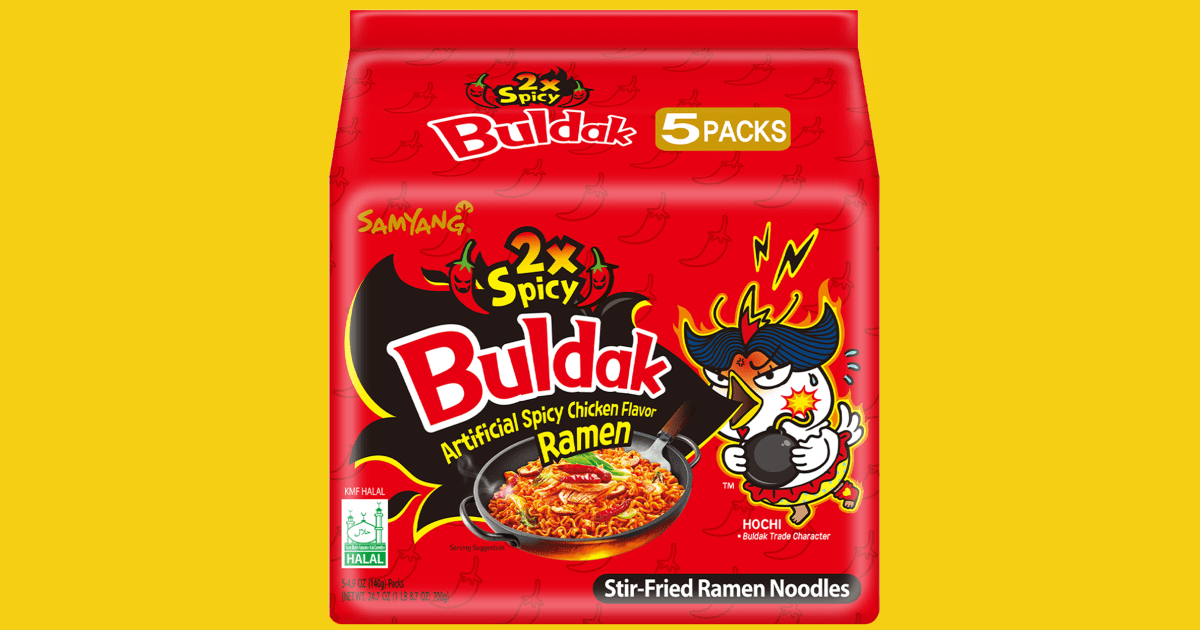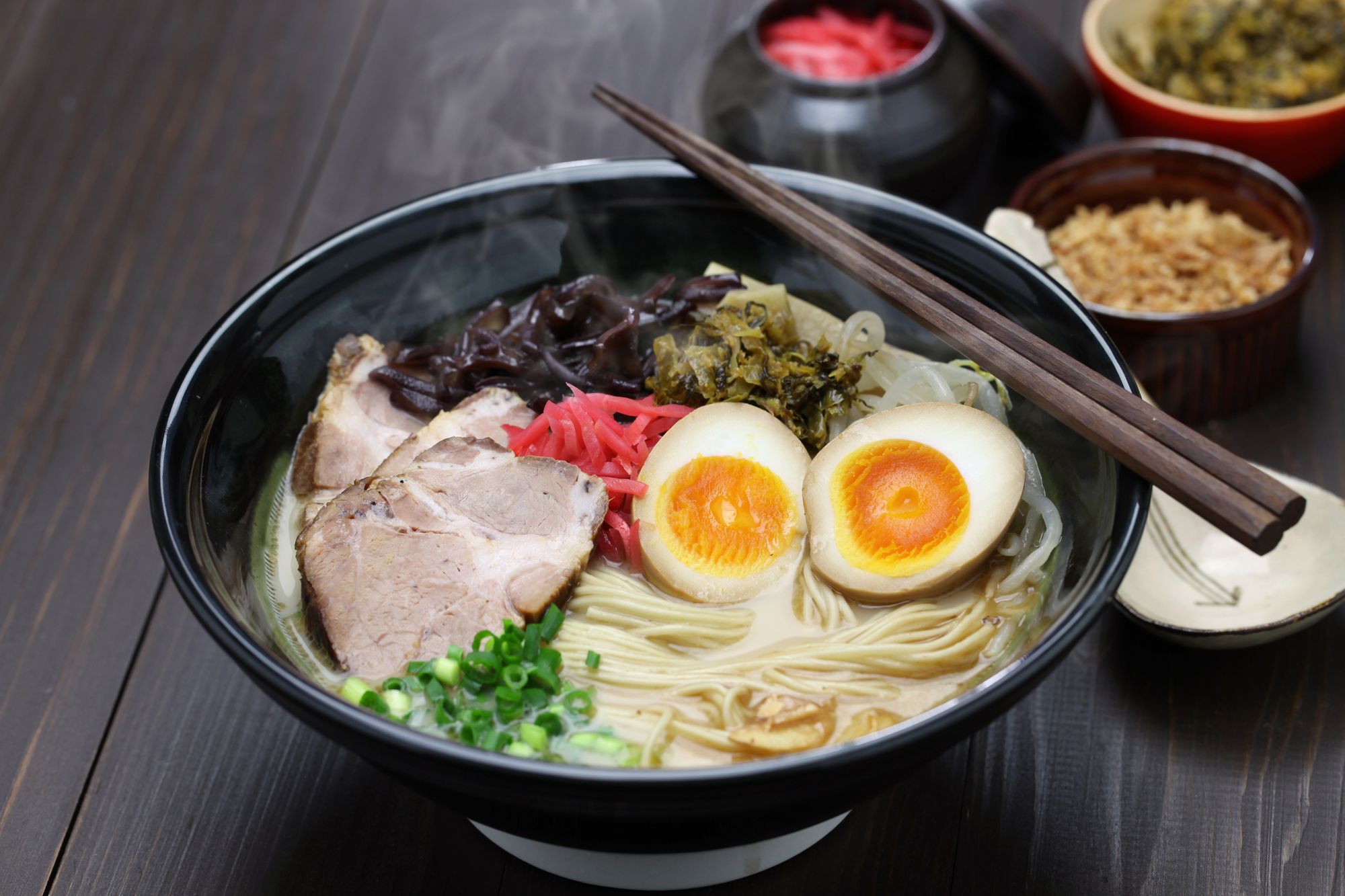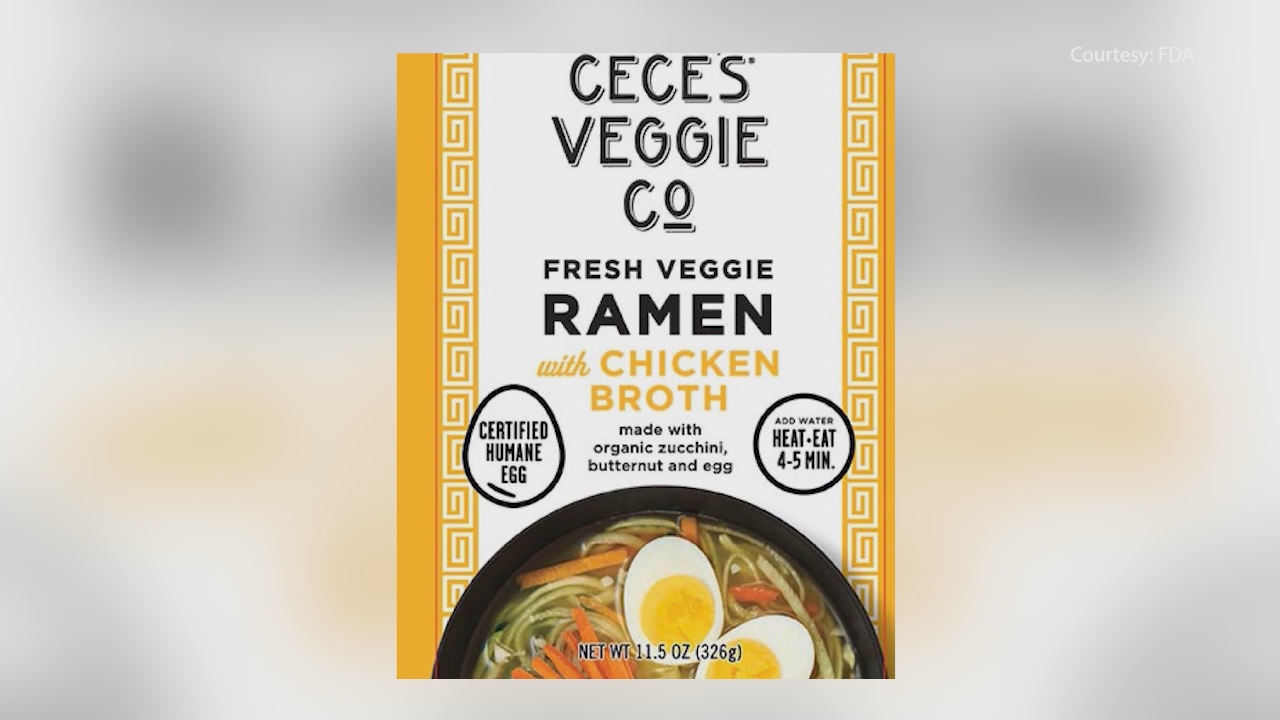What ramens are recalled?
Ever wondered if that comforting bowl of ramen could actually pose a hidden threat? The unsettling truth is that ramen, a globally cherished staple, isn't immune to safety concerns, with recalls becoming an increasingly frequent headline. In recent years, a disconcerting number of ramen products have been pulled from shelves due to the presence of insidious bacteria like E. coli and Salmonella. These incidents have sparked a wave of anxiety among consumers, forcing them to scrutinize brands and question the safety of their beloved noodle dish.
The reasons behind these recalls are varied, yet often stem from the same core issues. The most prevalent culprit is the contamination by harmful bacteria, notably E. coli and Salmonella. These microscopic adversaries can trigger severe illnesses, leading to debilitating food poisoning and, in the most tragic cases, even proving fatal. Another significant cause for concern is the presence of allergens such as wheat, eggs, and soy. For individuals with allergies, these seemingly innocuous ingredients can trigger life-threatening reactions.
- Who Is Jameliz Benitez Unveiling Her Role In The Nsa Leak Story
- Discover Noodles Types Uses Why We Love Them
| Category | Information |
|---|---|
| Product Type | Ramen (Instant Noodles) |
| Common Recall Reasons | Contamination (E. coli, Salmonella), Allergens (Wheat, Eggs, Soy), Mislabeling, Packaging Defects, Counterfeit Products |
| Health Risks | Food poisoning, Allergic reactions, Exposure to harmful bacteria and toxins |
| Impact on Consumers | Health risks, Financial losses, Reputational damage to brands |
| Prevention Measures for Consumers | Check FDA recall lists, Purchase from reputable sources, Read labels carefully, Be aware of food poisoning symptoms |
| Role of Food Industry | Adhere to safety standards, Accurate labeling, Vigilant inspection |
| Further Information | U.S. Food and Drug Administration (FDA) |
The repercussions of ramen recalls extend far beyond mere inconvenience. Consumers face potential health risks from contaminated products, alongside financial setbacks when forced to discard or return recalled items. Furthermore, these incidents can inflict lasting damage on the reputation of the companies involved, eroding consumer trust and brand loyalty.
Fortunately, consumers are not powerless in the face of these risks. There are proactive steps they can take to minimize their chances of consuming recalled ramen products. One of the most crucial measures is to diligently check the recall list before making any ramen purchases. This list, maintained by the FDA, provides a comprehensive overview of products that have been recalled due to safety concerns. Accessing this information on the FDA's website can serve as a vital first line of defense.
Ramen, that ubiquitous comfort food, has found itself in the crosshairs of food safety concerns, with recalls becoming an unsettlingly frequent occurrence. Recent years have witnessed several high-profile incidents where ramen products were yanked from store shelves due to contamination by harmful bacteria such as E. coli and Salmonella. This has led to widespread apprehension, prompting consumers to cast a more critical eye on the brands they once trusted implicitly.
The appeal of ramen is undeniable. It's quick, affordable, and satisfies cravings with its savory broth and springy noodles. However, this convenience shouldn't overshadow the potential risks lurking within improperly manufactured or handled products. The cascade of recalls serves as a stark reminder that even seemingly innocuous foods can pose a threat to public health.
The FDA's vigilant monitoring plays a critical role in safeguarding consumers. When a potential hazard is identified, the agency issues a recall, urging manufacturers to remove affected products from the market. This process is crucial in preventing widespread illness and protecting vulnerable populations. But the responsibility doesn't solely rest on regulatory bodies and manufacturers; consumers must also be proactive in protecting themselves.
One of the primary reasons for ramen recalls is the presence of contaminated ingredients. Bacteria like E. coli and Salmonella can infiltrate the production process at various stages, from the sourcing of raw materials to the packaging of the final product. These microscopic invaders can wreak havoc on the human body, causing a range of symptoms, from mild gastrointestinal distress to life-threatening complications.
Allergens, too, are a frequent trigger for ramen recalls. Wheat, eggs, and soy are common ingredients in many ramen varieties, but for individuals with allergies, these substances can be perilous. Even trace amounts can elicit severe reactions, ranging from hives and swelling to anaphylaxis, a potentially fatal condition. Accurate labeling is paramount to ensuring that consumers with allergies can make informed choices and avoid products that could harm them.
Mislabeling, whether intentional or accidental, can also lead to recalls. This can manifest in several ways, such as failing to declare the presence of allergens, providing inaccurate nutritional information, or listing ingredients that are not actually present in the product. Such discrepancies can be misleading and dangerous, particularly for those with dietary restrictions or health conditions.
Packaging defects, though often overlooked, can also compromise the safety of ramen products. Tears, holes, or loose seals can allow bacteria and other contaminants to enter the package, turning a seemingly harmless meal into a potential health hazard. Consumers should always inspect the packaging carefully before consuming ramen, and discard any product with visible signs of damage.
The rise of counterfeit products further complicates the landscape of ramen safety. These imitation goods, often produced with inferior ingredients and substandard manufacturing processes, can pose a significant health risk. Counterfeit ramen may contain harmful substances, lack essential nutrients, or be prepared in unsanitary conditions. Consumers should be wary of suspiciously cheap or unfamiliar brands, and always purchase ramen from reputable retailers.
The impact of ramen recalls reverberates throughout the food industry, affecting consumers, manufacturers, and retailers alike. For consumers, the immediate concern is the potential health risks associated with consuming contaminated products. Beyond that, recalls can lead to financial losses, as consumers are forced to discard or return affected items. The psychological toll can also be significant, as consumers lose trust in brands and become more hesitant to purchase ramen products.
For manufacturers, recalls can be devastating. They not only incur the direct costs of recalling and destroying affected products, but also suffer reputational damage that can take years to repair. A single recall can erode consumer confidence, leading to decreased sales and market share. The legal and regulatory ramifications can also be substantial, potentially resulting in fines, lawsuits, and stricter oversight.
There are several proactive measures that consumers can take to minimize their risk of consuming recalled ramen products. The first, and perhaps most important, is to regularly check the FDA's recall list. This list is updated frequently and provides detailed information about recalled products, including brand names, production dates, and affected lot numbers. By staying informed, consumers can avoid purchasing or consuming potentially dangerous ramen.
Another crucial step is to purchase ramen only from reputable sources. Grocery stores, supermarkets, and established online retailers are generally safer options than flea markets, discount stores, or unknown online vendors. Reputable retailers are more likely to adhere to food safety standards and promptly remove recalled products from their shelves.
Consumers should also be vigilant about reading product labels carefully. This includes checking the ingredient list for potential allergens, verifying the nutritional information, and ensuring that the packaging is intact. If anything seems amiss, it's best to err on the side of caution and avoid consuming the product.
Finally, consumers should be aware of the symptoms of food poisoning. Nausea, vomiting, diarrhea, abdominal pain, fever, and chills are all potential signs of foodborne illness. If you experience any of these symptoms after eating ramen, seek medical attention immediately. Early diagnosis and treatment can help prevent serious complications.
Contaminated ingredients are a pervasive concern in the food industry, and ramen products are no exception. Past ramen recalls have stemmed from the presence of harmful bacteria, such as E. coli and Salmonella, underscoring the potential for serious health risks. These microscopic organisms can trigger a cascade of adverse effects, ranging from debilitating food poisoning to, in the most severe instances, fatal outcomes.
Foodborne illness, a major public health challenge, finds a potential vector in contaminated ramen products. The spectrum of symptoms associated with foodborne illness includes nausea, vomiting, diarrhea, and abdominal pain, often causing significant discomfort and disruption. In more critical cases, foodborne illness can necessitate hospitalization, and tragically, can even lead to death. The vulnerability of certain populations, such as young children, pregnant women, and individuals with compromised immune systems, further emphasizes the urgency of addressing this threat.
Product recalls serve as a critical intervention when ramen products are found to be contaminated with harmful bacteria. These recalls, initiated by manufacturers, are designed to safeguard consumers from the potential dangers of foodborne illness. Consumers are strongly advised to diligently consult recall lists before purchasing ramen products and to refrain from consuming any product identified as being subject to a recall.
Prevention stands as the most effective strategy in mitigating the risk of contaminated ramen products. A multifaceted approach is required, encompassing rigorous food handling and storage practices, as well as the thorough cooking of ramen products. By adhering to these guidelines, consumers can significantly reduce the likelihood of encountering harmful bacteria and experiencing foodborne illness.
The potential hazards associated with contaminated ramen products demand vigilance and proactive measures from both consumers and the food industry. By understanding the risks and adopting preventative strategies, we can work collectively to ensure the safety and well-being of the public.
Ramen products are often recalled due to the presence of allergens, such as wheat, eggs, and soy. These allergens can trigger severe reactions in individuals with sensitivities, and in some instances, these reactions can be life-threatening.
It is crucial for consumers to be aware of the allergens present in ramen products. This information is typically found on the product label. Consumers who are allergic to any of the ingredients listed should avoid consuming the product.
Ramen products recalled due to allergens are typically removed from store shelves. However, it is important to note that these products may still be available online. Consumers with allergies should exercise caution when purchasing ramen online and carefully review the product label before consumption.
If you have allergies to common ramen ingredients, always check the product label. Avoid consuming products recalled due to allergens. Vigilance is key to protecting your health.
Mislabeling is a significant issue in the food industry, and ramen products are not immune. Recalls have occurred due to mislabeling incidents, including:
Undeclared Allergens: Ramen products may be recalled if they contain allergens not listed on the label. This poses a serious threat to individuals with food allergies, as they may unknowingly consume a harmful allergen.
Incorrect Nutrition Information: Recalls can also occur if ramen products are labeled with inaccurate nutrition details. This is misleading to consumers making dietary choices based on this information.
Mislabeling has serious consequences. Undeclared allergens cause allergic reactions, and incorrect nutrition information leads to poor dietary choices. Consumers should be aware of mislabeling risks and check labels carefully.
The food industry must ensure accurate labeling. Manufacturers should be truthful and accountable for any mislabeling.
Packaging defects are a concern for the food industry, including ramen products. Recalls have happened due to defects like:
Tears or Holes: These defects let bacteria enter the product, posing a health risk.
Loose or Missing Seals: These defects also allow bacteria and can lead to contamination with allergens or toxins.
Packaging defects cause health issues. Bacteria can cause foodborne illness, with symptoms like nausea, vomiting, diarrhea, and abdominal pain. In severe cases, it can be fatal.
Consumers should be aware of the risks and inspect products before eating. Avoid products with tears, holes, or loose seals.
The food industry must ensure proper packaging. Manufacturers should use high-quality materials and proper sealing. They should inspect products for defects before shipping.
Counterfeit products are a growing issue, affecting ramen products too. Often made with inferior ingredients, they may be unsafe. Consumers should know the risks and buy only from reputable sources.
Ingredients: Counterfeit products may use low-quality noodles or seasonings. These ingredients may be less nutritious and pose health risks.
Safety: Counterfeit ramen may not be safe. It may contain harmful bacteria or contaminants and may not be properly cooked. Consuming these products can lead to foodborne illness.
Consumers can protect themselves by buying from reputable sources and watching for signs of counterfeit products, such as unusually low prices or poor packaging.
This section addresses common concerns and misconceptions regarding recalled ramen products, presenting concise and informative answers.
Question 1: How can I check if a ramen product has been recalled?
You can check the Food and Drug Administration (FDA) website for a list of recalled ramen products. The FDA maintains a comprehensive database of all food products that have been recalled due to safety concerns.
Question 2: What are the risks of consuming recalled ramen products?
Consuming recalled ramen products can pose serious health risks. Recalled ramen products may contain harmful bacteria, such as E. coli and Salmonella, which can cause foodborne illnesses. Symptoms of foodborne illnesses can include nausea, vomiting, diarrhea, and abdominal pain. In severe cases, foodborne illnesses can be fatal.
Question 3: What should I do if I have purchased a recalled ramen product?
If you have purchased a recalled ramen product, you should not consume it. You should return the product to the store where you purchased it for a refund. You can also contact the manufacturer of the product for more information.
Question 4: How can I prevent consuming recalled ramen products?
You can prevent consuming recalled ramen products by checking the FDA website for a list of recalled products before you purchase ramen. You should also only purchase ramen products from reputable sources.
Question 5: What are the signs of a counterfeit ramen product?
Counterfeit ramen products may have misspelled words on the packaging, use low-quality ingredients, or have packaging that is different from the genuine product. If you suspect that you have purchased a counterfeit ramen product, you should not consume it. You should contact the manufacturer of the product for more information.
Question 6: What should I do if I have consumed a counterfeit ramen product?
If you have consumed a counterfeit ramen product, you should monitor yourself for any symptoms of foodborne illness. If you experience any symptoms, you should seek medical attention immediately.
Summary: It is important to be aware of the risks associated with recalled and counterfeit ramen products. By following the tips above, you can help protect yourself and your family from these products.
Next: Additional Information on Recalled Ramens
Ramen recalls are a serious public health concern. Consumers should be aware of the risks associated with consuming recalled ramen products and should take steps to prevent foodborne illness. By following the tips outlined in this article, consumers can help protect themselves and their families from recalled ramen products.
The food industry has a responsibility to ensure that food products are safe for consumers. Manufacturers should adhere to strict safety standards and should be held accountable for any recalls that occur. Consumers should also be vigilant about checking for recalled products and should only purchase ramen products from reputable sources.
- Recall Alert What Recallon Ramen Means What To Do
- Discover Bacteria Ramen A Gutfriendly Culinary Innovation


